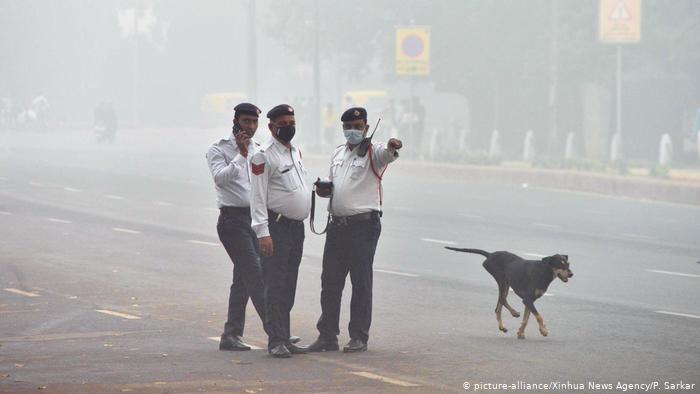
Audio By Carbonatix
The air in India's capital region becomes very polluted every winter. Vehicular and industrial pollutants, crop burning, and weather conditions cause the problem. Despite numerous initiatives, the problem has persisted.
Every year, the residents of India's capital region and surrounding areas experience hazardous levels of air pollution at the beginning of winter.
Smoke from stubble burning in the adjoining farmland areas of the states of Haryana and Punjab, as well as fumes from vehicles and industry, enshroud the city as lower temperatures and slower moving winds trap pollutants in the air.
On Monday, the air pollution in New Delhi was classed as severe for the fifth consecutive day.
The Central Pollution Control Board's air quality index recorded severe levels of pollution between 450 and 499 at monitoring centers in the city, with 500 the highest pollution level on the scale.
That score is more than 20 times the limit deemed safe by the World Health Organization (WHO) — it roughly equals smoking 25 cigarettes a day.
"A disadvantaged geographic location and regional meteorology with windy and dusty conditions during summer contributes greatly to Delhi's air pollution. This is particularly worsened by low relative humidity that increases particle resuspension," Prarthana Borah, India director for Clean Air Asia, told DW.
"In addition, there are episodic dust transport events from surrounding areas. As a land-locked megacity, there are limited avenues for the polluted air to be flushed out of Delhi. Nor is Delhi in the advantageous position of enjoying replacement of air from relatively unpolluted marine regions," she said.
COVID-19 worries
"Look at India, it's filthy. The air is filthy," said Donald Trump in the final US presidential debate, while justifying his stance on pulling the US out of the Paris climate deal. While his comments received a lot of backlash, experts warn that Delhi's air quality is bound to get worse as the festival season arrives in India.
Firecrackers during the Hindu festival of lights, Diwali, are expected to worsen air quality in mid-November.
A surge in COVID-19 cases, coupled with the rise in pollution, has made experts concerned about Delhi residents.
On Monday, Delhi recorded 7,745 new coronavirus cases, the highest daily number of infections in India.
Latest Stories
-
Some OMCs reduce fuel prices; petrol going for GH¢10.86, diesel GH¢11.96
47 minutes -
Trump says health is ‘perfect’ amid ageing concerns
1 hour -
China’s BYD set to overtake Tesla as world’s top EV seller
1 hour -
Joy FM’s iconic 90’s Jam returns tonight: Bigger, better, and packed with nostalgia
2 hours -
Uproar as UG fees skyrocket by over 25% for 2025/2026 academic year
3 hours -
Japan PM joins fight for more female toilets in parliament
4 hours -
Ga Mantse declares war on fishing industry child labour
4 hours -
Adom FM’s ‘Strictly Highlife’ lights up La Palm with rhythm and nostalgia in unforgettable experience
5 hours -
OMCs slash fuel prices as cedi gains
7 hours -
Around 40 dead in Swiss ski resort bar fire, police say
7 hours -
AFCON 2025: Aubameyang and Nsue make history among oldest goalscorers
8 hours -
AFCON 2025: How Kwesi Appiah’s Sudan qualified for round of 16 without scoring any goal
9 hours -
Ghana is rising again – Mahama declares
9 hours -
Firefighters subdue blaze at Accra’s Tudu, officials warn of busy fire season ahead
10 hours -
Luv FM’s Family Party In The Park ends in grand style at Rattray park
10 hours

